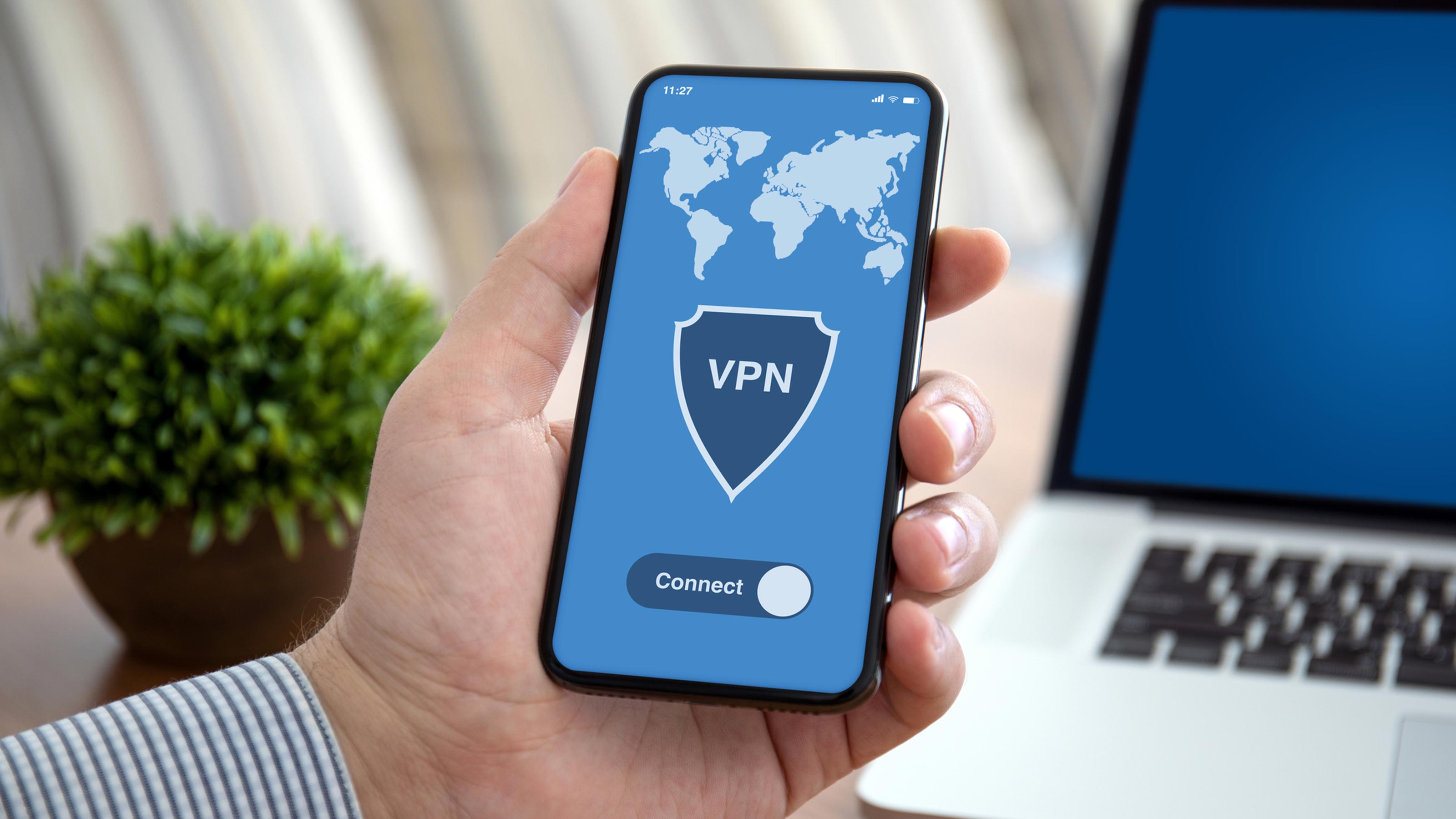Add a VPN to Surf the Internet Safely
To help you fight identity theft, consider adding a VPN.


Profit and prosper with the best of Kiplinger's advice on investing, taxes, retirement, personal finance and much more. Delivered daily. Enter your email in the box and click Sign Me Up.
You are now subscribed
Your newsletter sign-up was successful
Want to add more newsletters?

Delivered daily
Kiplinger Today
Profit and prosper with the best of Kiplinger's advice on investing, taxes, retirement, personal finance and much more delivered daily. Smart money moves start here.

Sent five days a week
Kiplinger A Step Ahead
Get practical help to make better financial decisions in your everyday life, from spending to savings on top deals.

Delivered daily
Kiplinger Closing Bell
Get today's biggest financial and investing headlines delivered to your inbox every day the U.S. stock market is open.

Sent twice a week
Kiplinger Adviser Intel
Financial pros across the country share best practices and fresh tactics to preserve and grow your wealth.

Delivered weekly
Kiplinger Tax Tips
Trim your federal and state tax bills with practical tax-planning and tax-cutting strategies.

Sent twice a week
Kiplinger Retirement Tips
Your twice-a-week guide to planning and enjoying a financially secure and richly rewarding retirement

Sent bimonthly.
Kiplinger Adviser Angle
Insights for advisers, wealth managers and other financial professionals.

Sent twice a week
Kiplinger Investing Weekly
Your twice-a-week roundup of promising stocks, funds, companies and industries you should consider, ones you should avoid, and why.

Sent weekly for six weeks
Kiplinger Invest for Retirement
Your step-by-step six-part series on how to invest for retirement, from devising a successful strategy to exactly which investments to choose.
By monitoring your internet browsing activity, identity thieves can steal personal information and use it to hack into your financial accounts. And ID theft has spiked during the pandemic. The number of cases more than doubled from 2019 to 2020, to nearly 1.4 million, according to a recent report by the Federal Trade Commission.
One way to protect yourself is by using a virtual private network. With a VPN, your connection is encrypted, which means anyone trying to monitor it will see nothing more than an unintelligible sequence of letters and numbers. A VPN also hides your IP address from the websites you visit. An IP address is a unique online identifier, and it can help hackers stitch together information about you.
Choose wisely. It’s difficult for the average user to navigate their way through the marketing claims made by the many VPN services. But you can see what experts say at sites such as Top10VPN.com and CNET.com. Although there are a lot of options, ExpressVPN, SurfShark and NordVPN are ranked highly by both Top10VPN and CNET, and all three offer money-back guarantees after 30 days. ExpressVPN costs $8.32 per month for a 12-month plan, but it has been offering a free three-month trial and 15-month plans for $6.67 per month. NordVPN costs $3.71 per month for a two-year plan, and SurfShark costs only $2.49 per month for a two-year plan. To install a VPN, you simply download it and follow a short, step-by-step installation wizard. You’ll need to enter an activation code that’s supplied when you subscribe or create log-in credentials.
From just $107.88 $24.99 for Kiplinger Personal Finance
Become a smarter, better informed investor. Subscribe from just $107.88 $24.99, plus get up to 4 Special Issues

Sign up for Kiplinger’s Free Newsletters
Profit and prosper with the best of expert advice on investing, taxes, retirement, personal finance and more - straight to your e-mail.
Profit and prosper with the best of expert advice - straight to your e-mail.
Why spend the money? Because free VPNs are notoriously unreliable and can expose users to more risk than not using one at all, says Simon Migliano, head of research at Top10VPN.com. Free VPN services can make data harvesting even easier. They are rife with advertising, showing you targeted ads based on your browsing behavior, and they do little to protect your data. And it’s hard to be sure whether a free VPN will keep your browsing history private from your internet service provider.
Caveats. “It’s important to remember that a VPN isn’t some all-singing, all-dancing solution to all your privacy and security problems,” says Migliano. However, if used properly, it’s significantly safer and more private to use a VPN than to go online without one, he says.
Because they mask your IP address, VPNs can also occasionally confuse sites you’re signing into, such as bank or brokerage accounts, which will often flag log-in attempts from multiple IP addresses as potential fraud, says Carrie Kerskie, author of Protect Your Identity, a Step-by-Step Guide. Given how commonplace it is to access accounts via mobile devices on various cellular and Wi-Fi networks, this shouldn’t be a problem for most people. But consider asking a potential VPN service provider to confirm that their service works with your financial service of choice, and make sure the VPN service offers a money-back guarantee before signing up.
Even with the added protection of a VPN, always take care to manage your passwords wisely. Avoid saving passwords in your web browser, says Kerskie, and change them regularly. It’s also a good idea to invest in a password manager, such as LastPass or 1Password; both cost about $36 per year.
Also beware of phishing and malware. More and more scammers are using e-mail, texts and phone calls to try to pry your personal information from you. Never click on links in e-mails that seem suspicious, and be cautious when responding to e-mails from addresses you don’t recognize.
Profit and prosper with the best of Kiplinger's advice on investing, taxes, retirement, personal finance and much more. Delivered daily. Enter your email in the box and click Sign Me Up.

Emma Patch joined Kiplinger in 2020. She previously interned for Kiplinger's Retirement Report and before that, for a boutique investment firm in New York City. She served as editor-at-large and features editor for Middlebury College's student newspaper, The Campus. She specializes in travel, student debt and a number of other personal finance topics. Born in London, Emma grew up in Connecticut and now lives in Washington, D.C.
-
 Nasdaq Leads a Rocky Risk-On Rally: Stock Market Today
Nasdaq Leads a Rocky Risk-On Rally: Stock Market TodayPresident Trump said he will decide within the next 10 days whether or not the U.S. will launch military strikes against Iran.
-
 Over 65? Here's What the New $6K Senior Tax Deduction Means for Medicare IRMAA
Over 65? Here's What the New $6K Senior Tax Deduction Means for Medicare IRMAATax Breaks A new tax deduction for people over age 65 has some thinking about Medicare premiums and MAGI strategy.
-
 U.S. Congress to End Emergency Tax Bill Over $6,000 Senior Deduction and Tip, Overtime Tax Breaks in D.C.
U.S. Congress to End Emergency Tax Bill Over $6,000 Senior Deduction and Tip, Overtime Tax Breaks in D.C.Tax Law Here's how taxpayers can amend their already-filed income tax returns amid a potentially looming legal battle on Capitol Hill.
-
 What Is AI? Artificial Intelligence 101
What Is AI? Artificial Intelligence 101Artificial intelligence has sparked huge excitement among investors and businesses, but what exactly does the term mean?
-
 How to Search For Foreclosures Near You: Best Websites for Listings
How to Search For Foreclosures Near You: Best Websites for ListingsMaking Your Money Last Searching for a foreclosed home? These top-rated foreclosure websites — including free, paid and government options — can help you find listings near you.
-
 Four Tips for Renting Out Your Home on Airbnb
Four Tips for Renting Out Your Home on Airbnbreal estate Here's what you should know before listing your home on Airbnb.
-
 Text-Generating AI Faces Major Legal Risks: Kiplinger Economic Forecasts
Text-Generating AI Faces Major Legal Risks: Kiplinger Economic ForecastsEconomic Forecasts Major legal risks to text-generating artificial intelligence: Kiplinger Economic Forecasts
-
 Is Relief from Shipping Woes Finally in Sight?
Is Relief from Shipping Woes Finally in Sight?business After years of supply chain snags, freight shipping is finally returning to something more like normal.
-
 Economic Pain at a Food Pantry
Economic Pain at a Food Pantrypersonal finance The manager of this Boston-area nonprofit has had to scramble to find affordable food.
-
 The Golden Age of Cinema Endures
The Golden Age of Cinema Enduressmall business About as old as talkies, the Music Box Theater has had to find new ways to attract movie lovers.
-
 Pricey Gas Derails This Uber Driver
Pricey Gas Derails This Uber Driversmall business With rising gas prices, one Uber driver struggles to maintain his livelihood.